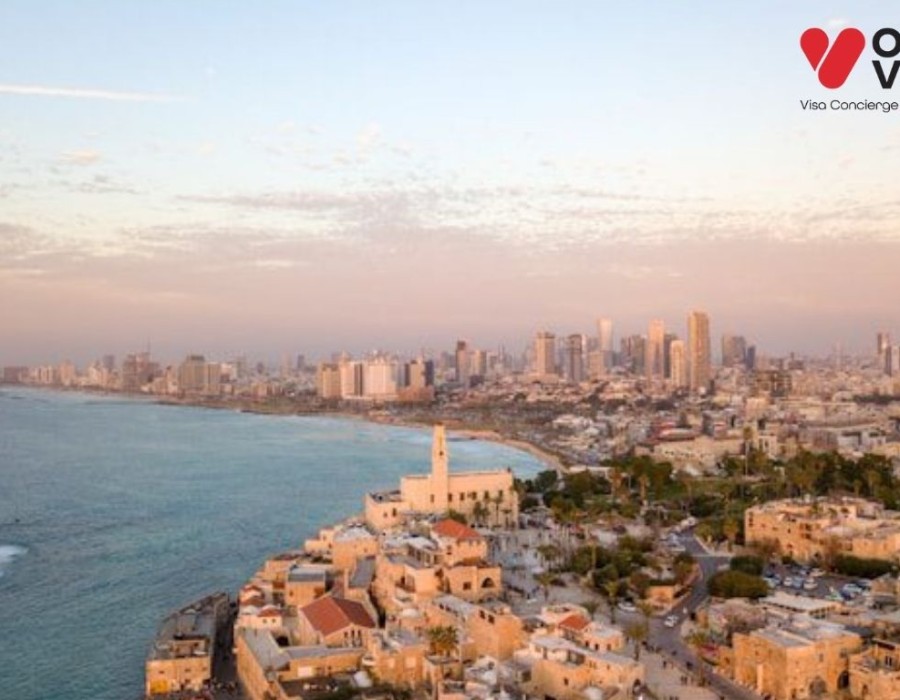Things Not to Do in Israel – Travel Smarter and Stay Out of Trouble
Israel is a land full of contrasts—modern cities beside ancient ruins, religious devotion alongside vibrant nightlife, deserts next to lush greenery. With so much to offer, it is no surprise that millions of travelers visit this small but significant country every year. However, before you go, it is important to know the Things Not to Do in Israel so you can have a safe, respectful, and memorable journey.
Avoid Sensitive Conversations on Politics and Religion
Israel is deeply connected to history, faith, and ongoing political issues. The Israeli-Palestinian conflict, military policies, or religious divisions are very personal topics for many locals. One of the key Things Not to Do in Israel is bringing up these subjects casually or treating them like small talk.
Unless you’re close with someone or they bring it up first, avoid asking people about their political stance, religion, or military service. These can be emotional and sometimes divisive topics.
Don’t Ignore Local Customs on Shabbat
Shabbat, or the Jewish Sabbath, starts at sunset on Friday and ends at sunset on Saturday. During this time, many Jewish neighborhoods and cities like Jerusalem slow down or shut down completely. Public transport may stop, stores will be closed, and Orthodox families observe strict religious rules.
If you visit during this time, don’t expect regular services. Understanding this schedule and planning ahead is one of the smart Things Not to Do to avoid confusion and inconvenience.
Refrain from Taking Photos at the Wrong Time or Place
Israel has many beautiful sites that are perfect for photos—holy sites, historic buildings, beaches, and desert landscapes. But you must be careful where you point your camera. Do not take pictures during religious ceremonies, of people praying, or at military facilities.
Taking photos in these restricted areas is one of the Things Not to Do in Israel, especially near border zones or at the Western Wall without understanding the guidelines. Always look for signs or ask someone before taking photos.
Don’t Disrespect Religious Spaces and Dress Codes
Israel is home to sacred sites for Jews, Christians, Muslims, and others. When visiting religious locations like the Western Wall, Al-Aqsa Mosque, or churches in Jerusalem, modest dress is a must. For women, this often means covering your shoulders, chest, and knees. Men should avoid wearing shorts or sleeveless shirts.
Not following these expectations may offend locals or get you turned away at the entrance. Respecting dress codes is one of the most essential Things Not to Do in Israel when exploring these spiritual landmarks.
Avoid Public Displays of Affection in Conservative Areas
While Tel Aviv is progressive and LGBTQ+ friendly, other cities—especially Jerusalem and many small towns—are more conservative. Public displays of affection, such as kissing or hugging in religious neighborhoods, can be seen as disrespectful.
Being aware of your surroundings and adjusting your behavior accordingly is another important part of the Things Not to Do, especially if you’re traveling as a couple.
Don’t Disregard Security Procedures or Warnings
Security in Israel is taken very seriously. You will likely experience bag checks at malls, stations, and tourist attractions. Never joke about bombs, weapons, or anything related to terrorism—especially at the airport.
Also, do not wander into areas marked as military zones or cross borders without checking official safety advice. Disregarding these measures is not only risky but also one of the more serious Things Not to Do in Israel that could land you in legal trouble.
Don’t Assume Everything Works on a Sunday
Unlike many Western countries where Sunday is a day of rest, Israel's weekend falls on Friday and Saturday. Sunday is a normal workday. This can confuse many tourists who expect businesses to be closed on Sundays.
So, if you're planning visits, markets, or meetings, keep this in mind. Misunderstanding the weekly schedule can cause unnecessary delays and frustration—another one of those avoidable Things Not to Do when you're planning your trip.
Respect Cultural Differences
Israel is a diverse country with people from all backgrounds—Jews, Arabs, Druze, Bedouins, and immigrants from all over the world. Customs, food habits, religious practices, and even the language spoken may change from one neighborhood to another.
Understanding this and showing patience is essential. Don’t assume everyone shares the same culture or traditions. In fact, expecting uniformity across the country is one of the most common Things Not to Do in Israel for first-time visitors.
Frequently Asked Questions (FAQs)
Q1: Is Israel safe for tourists?
Yes, most areas are safe, especially tourist cities like Tel Aviv, Haifa, and Jerusalem. However, always check travel advisories before heading to border regions.
Q2: What should I wear when visiting religious sites?
Modest clothing is expected. Cover shoulders and knees, and women may need a scarf or shawl to cover their head at some places.
Q3: Can I take photos at the Western Wall?
Yes, but avoid photographing people during prayer, especially on Shabbat. Respect signs and local customs.
Q4: Are all shops closed on Saturdays?
In religious areas, yes. But in cities like Tel Aviv, some restaurants and shops stay open.
Q5: Should I avoid talking politics in Israel?
Yes, unless invited into the conversation. It’s a sensitive subject best left to locals.
Final Words
Understanding the Things Not to Do in Israel will not only help you avoid embarrassment or trouble, but it will also show locals that you care about their culture and values. By staying respectful and informed, you’ll enjoy everything this incredible country has to offer—from holy sites and desert landscapes to tasty food and exciting cities.
For more help with travel planning, visa guidance, or custom itineraries, reach out to OneVasco – your reliable travel support partner for worldwide destinations.





Comments